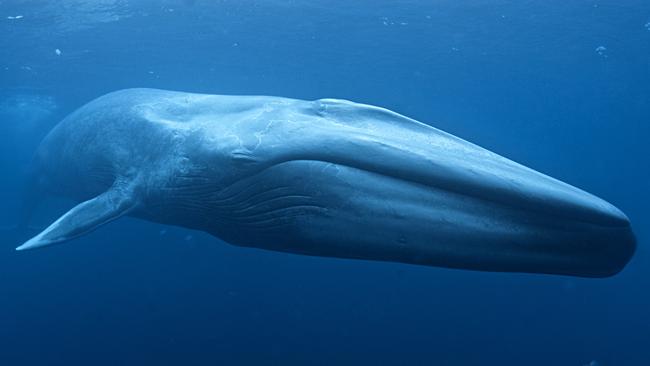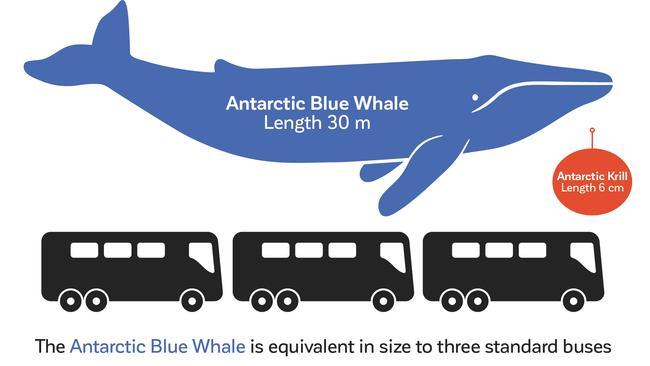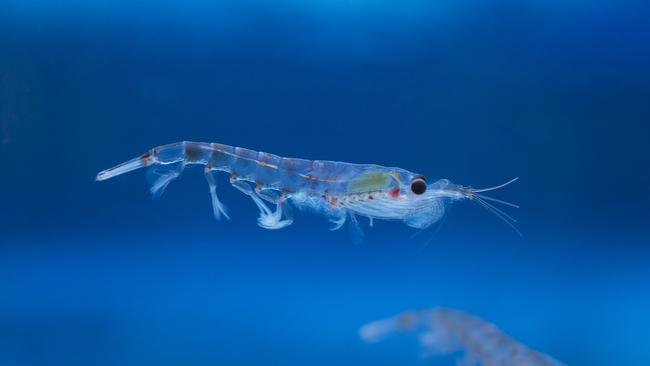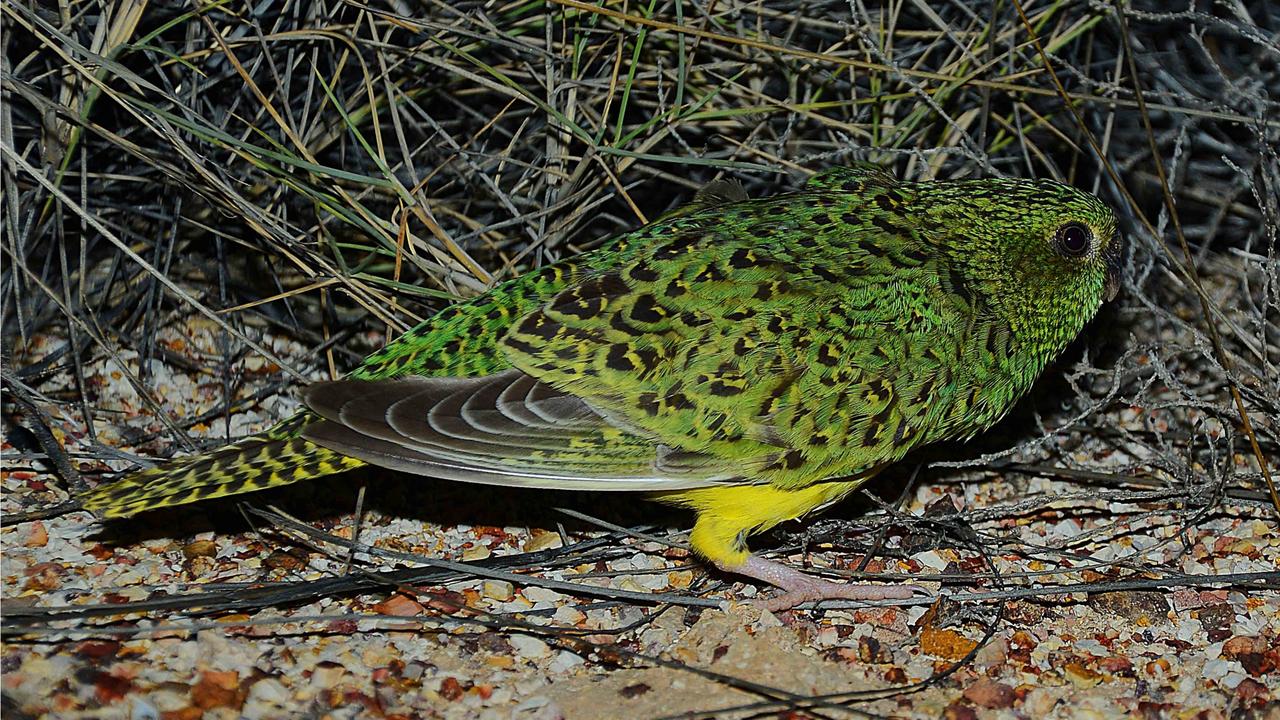CSIRO’s Investigator sets off on Antarctic voyage for pioneering blue whale research
The riddles of Earth’s largest creature may soon be unravelled as experts set sail on the most comprehensive scientific voyage ever.

Despite being the largest creature ever to exist on Earth, the blue whale has managed to keep a surprising number of secrets.
Some of those riddles may soon be unravelled, though, by the most comprehensive scientific voyage ever undertaken to study the leviathans, on the edge of the Antarctic ice.
The team of 28 scientists from across the globe set sail from Hobart on Saturday, armed with secret-busting technology, including multi-beam echo-sounders and sample-collecting drones.
Their primary quest is to determine the crucial relationship between the world’s biggest animal – as long as three standard buses and weighing 100 tonnes - and one of the smallest and most plentiful; its prey, krill.

During the seven week voyage on board the CSIRO research ship RV Investigator, scientists hope to discover how the shape of krill swarms affect the distribution and behaviour of blue whales.
They will also test the theory that blue whales engage in a form of deep ocean farming; their poo fertilising the sea and growing more algae for krill to eat; thus creating more food for the giant cetaceans themselves.

With krill fisheries expanding, the research may also help ensure the trade does not undermine a key species supporting life in the Southern Ocean.
“Knowledge about the whale-krill relationship and the role of whales in maintaining ecosystem health is key to understanding the ecology of the Southern Ocean,” said voyage chief scientist Mike Double.
“We have a world-class combination of people, research ship, and cutting-edge technologies. It’s going to be an incredible seven-week voyage.”
The voyage will undertake a number of “firsts” in scientific research, including using the Investigator’s multi-beam echo-sounders to develop detailed three dimensional models of the size, shape and density of the krill swarms.
Drones will be flown over blue whales to photograph, measure and identify individuals, as well to attempt to collect samples of their blow material, released when a whale exhales, and their faeces.
Voyage deputy chief scientist Dr Elanor Bell said the research would involve the first in-situ experiments to test the theory that whales fertilise the ocean with iron, from iron-rich krill, important for the growth of microscopic algae.
“We’ll sample water in areas with whales and krill, whales only, krill only, and neither species,” Dr Bell said. “The sampling will reveal where the iron goes, how fast it sinks, and whether primary production increases over time.”



